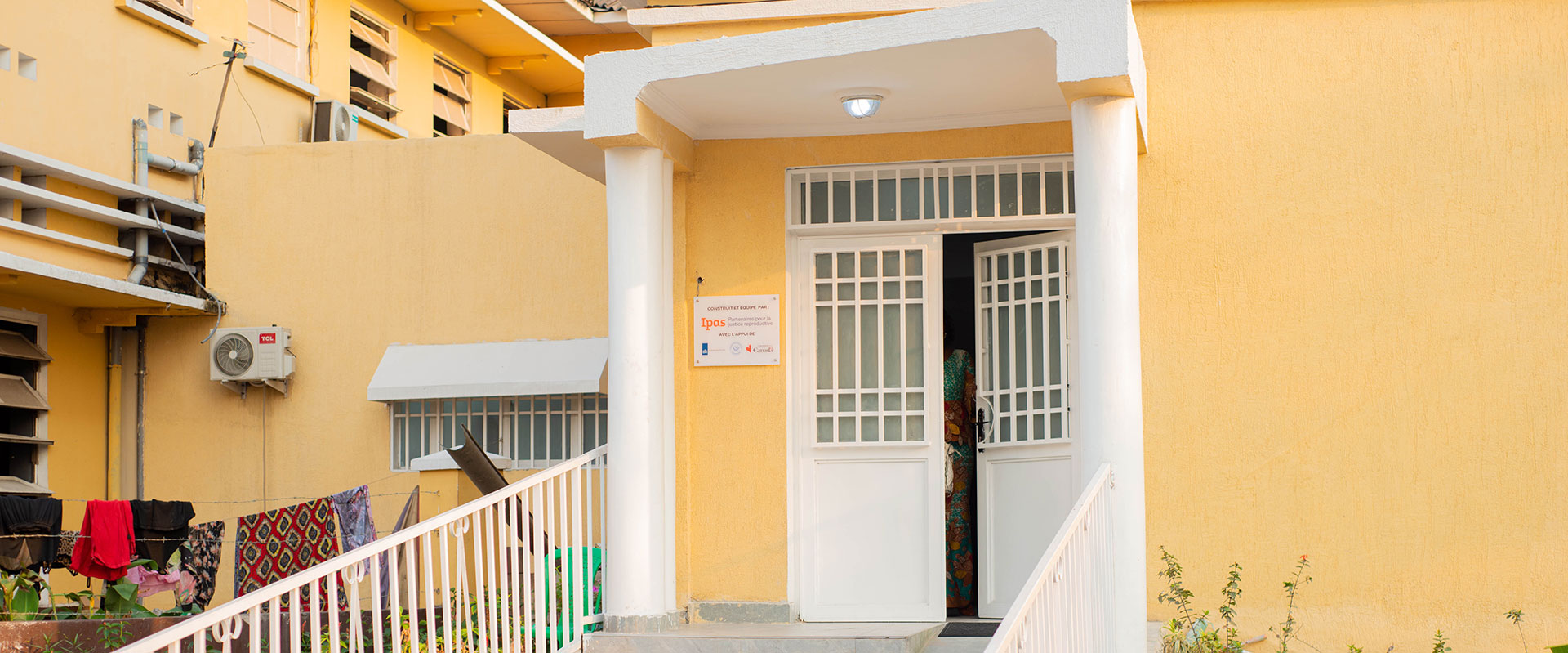In the Democratic Republic of Congo, access to comprehensive abortion care remains a taboo topic, enshrined in restrictive legal frameworks and rigid social norms. Although some progress has been made, cultural and religious barriers still prevent women and girls from accessing the information and care they need.
While safe medical solutions exist, their access is hampered by fear, lack of information and social rejection. In the absence of alternatives, many resort to dangerous methods or fall into depression, sometimes with tragic consequences such as suicide.
The story of Ufufuo* takes on its full meaning in this context: the tale of a young woman trapped between her faith, her future and a choice that could cost her life.
Story background: Dr. Michée Kanda, a health systems officer with Ipas, routinely encounters sociocultural and religious barriers to providing abortion care. In a recent instance, a friend (also a doctor) and a religious leader sought his assistance for a young, pregnant woman who needed a safe abortion. Dr. Kanda facilitated a referral to an Ipas-supported health facility. After the young woman received care, Dr. Kanda obtained her explicit, informed consent to share her experience.
*Her name has been changed here to protect her privacy.
A life-changing announcement
In the vibrant streets of Kinshasa, amid the songs of the faithful and the echoes of prayers, lived Ufufuo, a 22-year-old woman with an unshakeable faith. Since childhood, she always found refuge in the church, a sanctuary where she served with devotion, guided by the teachings of her pastor and the weight of the religious traditions that had forged her existence.
A brilliant student and highly respected in her community, Ufufuo saw her future mapped out: completing her studies, honoring God and making her aunt, the only family she had left, proud. But one day, everything changed. An unusual delay, doubts, then the verdict: she was pregnant.
The news crushed her. She replayed the sermons on purity, the warnings against sin, and already pictured the judgmental looks that awaited her if she dared say she was pregnant. How could she tell her aunt, her brothers and sisters in Christ, that she had fallen off track?
A cry of alarm to the pastor
Deeply terrified, she kept the secret, shutting herself away in a silence that consumed her gradually. When the inner pain became unbearable, she sought a radical solution. A first suicide attempt.
In a last surge of hope, she talked to her pastor about her situation. The pastor was deeply moved by her distress. He reminded her that all life was precious, and that God would never abandon her, but Ufufuo’s unease wouldn’t go away. Shame, fear and social pressure plunged her into such a deep depression that even the pastor was faced with an unbearable dilemma: whether to stick to religious principles or save the life of this young woman.
A difficult decision, a path to safety
She was in danger, not only physically, but also psychologically. The top priority was thus protecting her life and mental health. Unsure of how to help her, the pastor called in a trustworthy doctor from his church who also knew Ufufuo and was immediately concerned about her mental state.
The doctor then contacted an old classmate, Dr. Michée Kanda, the health system officer at Ipas DRC. Together with the pastor, they assessed the legal and secure framework within which Ufufuo could be cared for, ensuring that all medical and psychological precautions were respected.
Finally, with the support of those who loved her, Ufufuo went to the Kintambo Center of Excellence , an Ipas-supported health facility offering safe abortion services and psychosocial follow-up, renowned for its warm welcome and quality care. She was received with respect and dignity, in a space where her well-being came before judgment.
“I reassured her that it was her right and that she had knocked at the right door to obtain a safe abortion, especially if she was considering having a baby in the future,” says Dr. Mboma, Ipas-trained healthcare provider and Comprehensive Abortion Care mentor.
A brand new start
After receiving abortion care, Ufufuo began psychological counseling. For the first time in months, she felt alive again.
“What I went through broke me but also made me whole again. I realized that faith shouldn’t be a prison, but a refuge. That God didn’t want my suffering, but my rebirth,” she says. Today, Ufufuo continues her studies and is still committed to her faith, but with a more compassionate eye on herself and other women.
“There are so many young girls like me, lost, isolated, terrified. They need to know that they are not alone and that their lives have value, whatever their path.”
Thanks to the pastor’s courage, the doctor’s kindness and the support of health professionals, Ufufuo has found a new life, faithful not only to God, but also to herself.
“There are so many young girls like me, lost, isolated, terrified. They need to know that they are not alone and that their lives have value, whatever their path.”
Working together for equal access to healthcare
Ufufuo’s story illustrates the importance of inclusive dialogue between healthcare professionals, community players and religious leaders. In Africa, and particularly in the DRC, cultural norms and religious beliefs profoundly influence access to reproductive health services.
It is in this context that Ipas works with various stakeholders, including religious leaders, to break taboos and ensure safe access to comprehensive abortion care. By building the capacity of healthcare providers, involving communities and raising awareness among religious leaders, Ipas works to ensure that every woman can make informed choices, in dignity and safety.
Working more with religious leaders is crucial, as their influence can either reinforce stigma or open doors to compassionate and women-centered solutions. As in the case of Ufufuo’s pastor, it is possible to adopt a compassionate approach that puts the lives and well-being of women and girls first.


